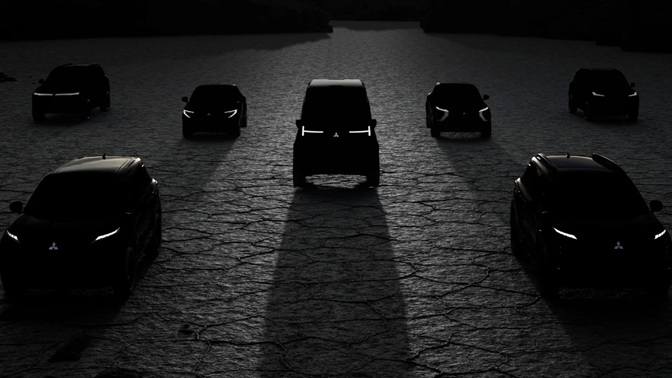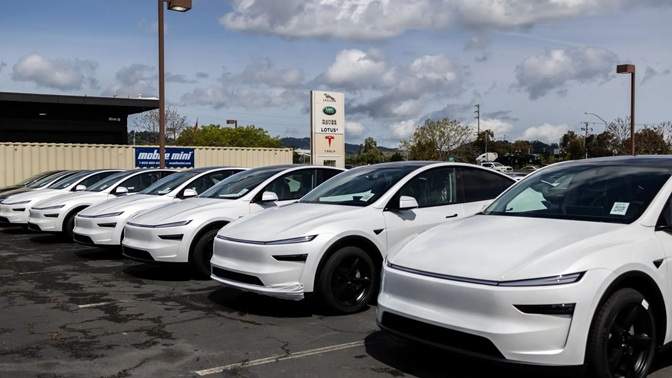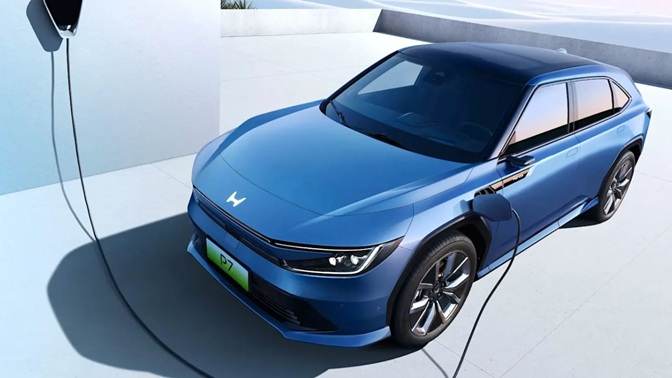Mitsubishi is making a bold move into the electric vehicle (EV) market with the launch of a brand-new small electric SUV. According to a report from Automotive News, this exciting model is set to arrive in the U.S. market in the second half of 2026. With Mitsubishi planning several new electrified vehicles in the coming years, this SUV will be the brand’s first all-electric model in the U.S. since the retirement of the i-MiEV in 2017. Let’s dive into what we know so far and what this means for Mitsubishi’s EV future.

Mitsubishi’s First New EV in Years
The news comes from discussions between Mitsubishi executives and dealers at the 2025 National Automobile Dealers Association (NADA) show. An inside source revealed that the upcoming EV will be a compact, coupe-style crossover, likely similar to Nissan’s planned Leaf replacement. This connection isn’t surprising, as Nissan owns 34% of Mitsubishi and has a history of sharing platforms and technologies with the brand.
Mitsubishi currently sells the Outlander Plug-in Hybrid (PHEV), which shares its platform with the Nissan Rogue. However, this new EV will be Mitsubishi’s first fully electric entry into the American market in nearly a decade. This move aligns with the automaker’s broader Momentum 2030 strategy, which aims to introduce at least one new or refreshed model every year from 2026 to 2030.
What to Expect from Mitsubishi’s Electric SUV
While details remain scarce, we can make some educated guesses based on Mitsubishi’s partnership with Nissan and its previous concept teasers. Here are some key aspects to anticipate:
Coupe-Style Crossover Design – Mitsubishi’s EV will likely have a sleek, coupe-like silhouette, blending sporty aesthetics with practicality.
Platform Sharing with Nissan – The new model could share parts of its underpinnings with Nissan’s upcoming Leaf replacement, ensuring modern battery and drivetrain technology.
Advanced Technology – Expect cutting-edge driver assistance features, improved battery efficiency, and an interior with the latest infotainment and connectivity options.
Competitive Range and Charging – While no official numbers are available yet, the SUV will need to compete with models like the Tesla Model Y, Hyundai Ioniq 5, and Ford Mustang Mach-E, meaning we could see an estimated range of 250-300 miles per charge.
Mitsubishi’s Broader EV Strategy
Mitsubishi has been relatively slow to embrace fully electric vehicles compared to competitors like Tesla, Hyundai, and Toyota. However, the brand is now ramping up its EV and hybrid lineup.
In May 2024, Mitsubishi introduced its Momentum 2030 roadmap, which highlights a mix of internal combustion, hybrid, plug-in hybrid, and fully electric models. An accompanying teaser image showcased seven upcoming vehicles, indicating a major expansion of the brand’s electrified offerings.
The automaker has also teased an electric pickup truck in 2023, though it remains unclear whether this model will make it to the U.S. market. Given the rising popularity of electric trucks, Mitsubishi may enter this segment in the near future to compete with models like the Ford F-150 Lightning and Chevrolet Silverado EV.
Will Mitsubishi Join Nissan’s Potential Honda Partnership?
One major uncertainty in Mitsubishi’s future is its relationship with Nissan and Honda. Reports have suggested that Nissan and Honda might form a deeper strategic alliance to develop new EV technologies together. Initial rumors indicated that Mitsubishi might be included in this partnership, but newer reports suggest the brand could remain independent.
If Mitsubishi does align with Nissan and Honda, it could gain access to next-gen battery technology and economies of scale, making its future EVs more competitive. However, if it stays separate, Mitsubishi will need to heavily invest in R&D to keep up with the fast-evolving EV market.
Why Mitsubishi’s EV Push Matters
Mitsubishi’s commitment to electrification is not just about staying relevant—it’s about survival in an auto industry that is rapidly moving away from traditional gasoline-powered cars. Global EV sales are rising, and government regulations are pushing for lower emissions. Mitsubishi’s upcoming electric SUV will be a crucial test for the brand’s ability to compete in the evolving market.
Here’s why this new EV matters:
Expands Mitsubishi’s presence in the U.S. – The brand has been struggling in the American market, and a well-designed electric SUV could help reignite interest.
Competes with other affordable EVs – If priced competitively, Mitsubishi’s small electric SUV could attract budget-conscious buyers looking for an alternative to Tesla, Hyundai, and Volkswagen EVs.
Signals Mitsubishi’s future direction – If this EV is successful, it will likely pave the way for more electric models, including SUVs, trucks, and even performance vehicles.
Mitsubishi has been slow to fully embrace EVs, but this upcoming small electric SUV marks a turning point. The brand is finally taking EVs seriously, and if executed well, this model could help reestablish Mitsubishi as a competitive player in the growing EV market.
With a potential Nissan partnership, a growing EV lineup, and a roadmap through 2030, Mitsubishi is setting itself up for an electrified future. But will this new SUV be enough to put Mitsubishi back on the map?
PEOPLE WHO READ THIS, ALSO READ




